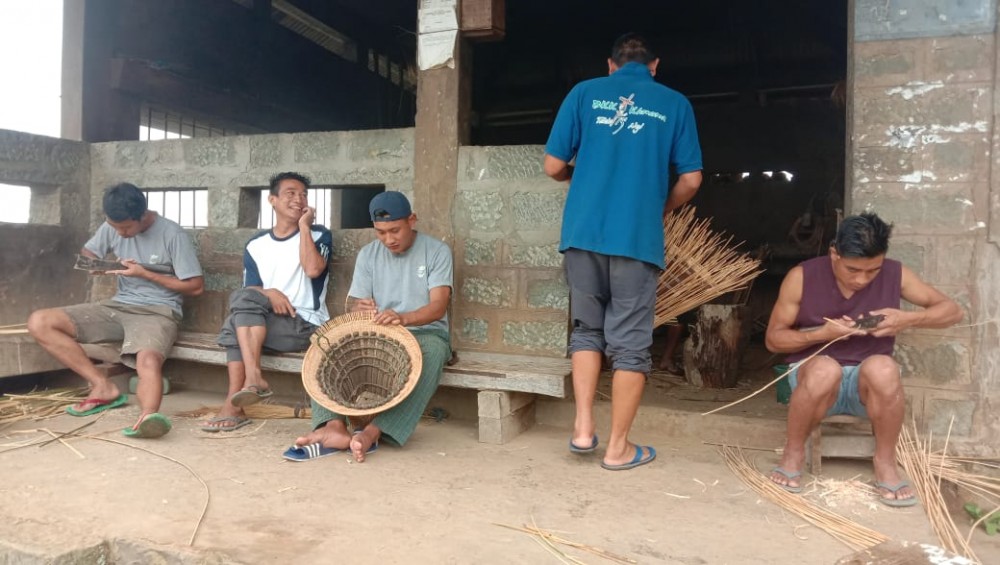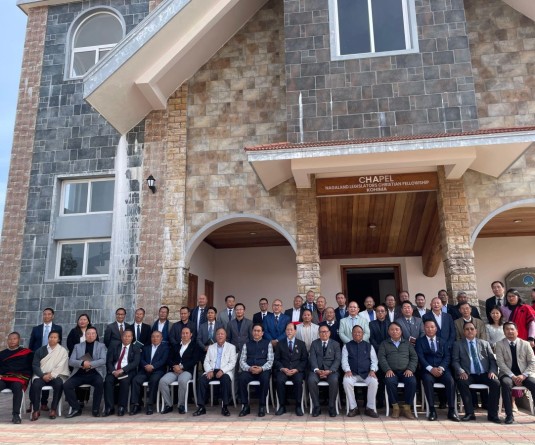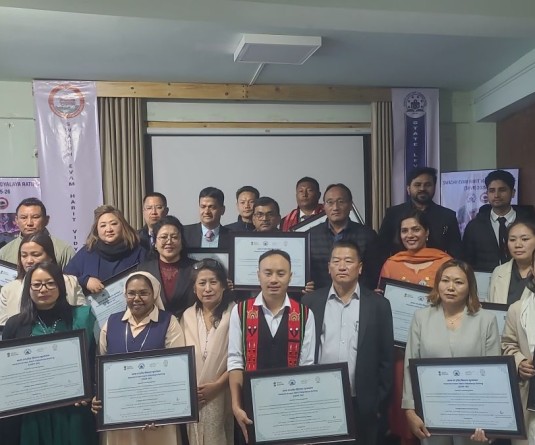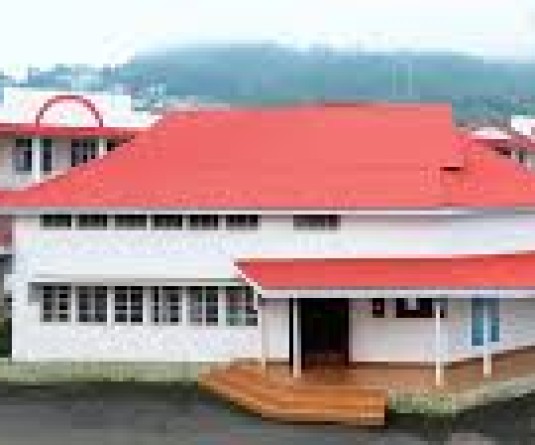Young men learning to weave baskets at one of the Thehou in Khonoma village. (Morung Photo)

Morung Express News
Kohima | September 20
The COVID-19 pandemic and subsequent lockdown in the State caused several setbacks, yet a few positive outcomes have emerged out of the new normal.
In the quaint setting of Khonoma village, young men are gradually being connected to the Thehou/Thehouba again.
Traditional values and skills are being revived at the Thehou- a place of gathering for men in the ancestral Angami heritage where values, histories, folklores and various life skills are shared and passed down to the young.
"With people migrating to cities and the arrival of technology, many people are ignoring the Thehou but this lockdown is connecting many people to the Thehou again,” says Pelevizo Meyase, a young Film maker from Khonoma village.
For Meyase, the Thehou is an institution for learning and meeting. With many students, and working people having returned to the village during the lockdown, many are spending more time in their respective Thehou and learning carpentry and various craft skills such as basket weaving and bamboo crafts.
Meyase points out that unlike organised institutions, the Thehou does not have specific schedules. Rather it offers a free learning space where the young can visit any time of the day. "Those interested can come and watch the experienced elders and learn from them. The experienced ones will often guide them," says Meyase.
35-year old Keviphrülie Iralu, a tourist guide by profession, remembers visiting the Thehou at a young age when he along with his friends would spend the night at the Thehou listening to elders narrate folklores.
The Thehou was where young men learned about their histories and values, and more importantly social responsibilities, for Iralu. Although the Thehou has not completely lost its relevance, Iralu notes that the young had stopped visiting the Thehou in recent years.
"Only the older folks have been gathering and weaving baskets or conversing. It is only during the lockdown period that the younger ones have started visiting the Thehou and learning these crafts. It is a totally new experience for me," says Iralu.
With the absence of tourists in the recent months, the tourist guide has had more time in his hands to visit the Thehou where he mentions that he has learned four different types of basket weaving. "Each basket has its own unique design, and unique pattern of weaving. It's something very new and exciting for me," says Iralu.
Khonoma village has about 20 Thehous, according to Iralu who also mentions that even the old Thehous are witnessing the increasing attendance of people during the lockdown period.
"The Thehou was rejuvenated in the village during the lockdown period. I also went to a Thehou and learned how to weave basket and also learnt more about the history of my village," says 24-year old Peleviko Chase, a student of MSW (Master of Social Work).
According to the MSW student, the Thehou is an important learning center for the young and old men in the village where moral values, traditions, handicrafts, folk art such as songs and dances were learned. The Thehou also acted as a court to settle minor disputes between people. "However, the Thehou has lost certain of its functions due to the rapid rise of modernisation. Young people don't visit it often like in the olden times. Young people go to school for education rather than visiting the Thehou to learn handicrafts and stories," expresses Chase.
However, for Chase, the concept of Thehou has still not died since people still visit it to 'learn things and also to resolve petty disputes in the village' even in recent times and especially during the pandemic and lockdown.
"I'm not a regular visitor but every time I go to the Thehou I learn about the history of the people of the village. Most people still go to the Thehou to learn things and acquire new skills. Old people still talk about history in the Thehou to the younger generation so that the history of the people never gets lost. It is still a place where traditional values and norms are taught," remarks Chase.






